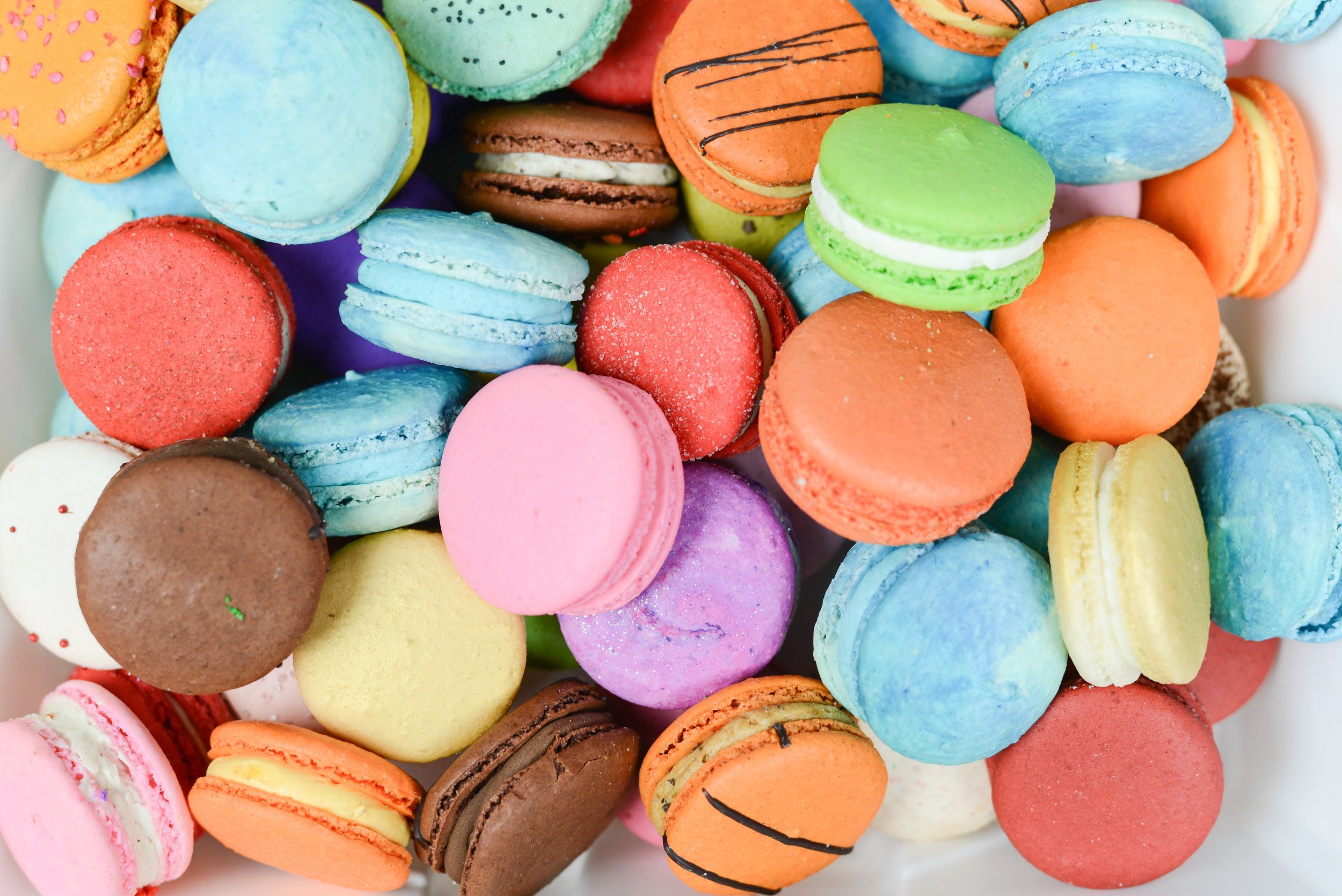What Your Sugar Cravings are Trying to Tell You
One of the most common complaints I get from clients is “I crave sugar all the time”. I’m super excited to (finally) address the topic of sugar and sugar cravings with you all.
I want to pre-face this post by saying that there is absolutely NOTHING wrong with enjoying sweets. Nothing. I strongly believe that enjoying sweets without guilt or restriction is part of a healthy dietary pattern. For some people this might be here and there, and for other people it might be everyday. Neither are wrong! We are all different and unique needs. Sugar alone is not the devil that the media makes it out to be and I think that it’s important to make sure we are looking at the overall dietary pattern, and not zooming in on one day, one holiday, or one vacation.
We do know that consuming excessive amounts of refined sugars along with other dietary and lifestyle factors can have a negative impact on our health. Too much sugar in someone’s diet may contribute to an increased risk for non-alcoholic fatty liver disease, heart disease, decreased insulin sensitivity and blood sugar abnormalities, and weight gain from excess caloric intake (particularly sugar sweetened beverages). We also know that big spikes and dips in blood sugar from excess refined sugar consumption can negatively impact mood, cognition and energy levels. Research has also shown that eating foods high in sugar can decrease blood levels of antioxidants.
Below are some of the primary reasons that I see people craving sugar or eating sugar in excess:
Overly restricting or avoiding sugar
Yup. This is one of the number one reasons I see people overeating sweets! When we tell ourselves that we can’t or shouldn’t have something, we tend to want it even more. When we finally let ourselves have whatever that food is, we usually overeat it. What’s the best way to break this cycle might you ask? Allow yourself to eat and enjoy sweets mindfully! Incorporate them into your weekly meal planning and enjoy them amongst a variety of other foods.
Undereating carbohydrates
We live in a very carb-phobic society. The reality is that your body needs carbohydrates for energy. If you are overly restricting carbohydrates at meals and snacks, sugar cravings are your body’s way of saying that it is being under-fueled (it sees sugar as a quick source of energy). Instead of avoiding carbs and then overcompensating with excessive refined sugar intake, try including nutrient rich carbohydrates at meals alongside protein, fats and lots of non-starchy veggies. Some of my favorites are potatoes, sweet potatoes, quinoa, brown rice & oats.
Inadequate fat intake
Fats are your friend! Fats including avocado, nuts, nut butter, seeds and olives take longer for your body to digest. Including healthy whole food fats at meals and snacks helps to stable blood sugar, promote satiety, and slow down the digestion and absorption of sugars. I recommend 1-2 servings of fat at meals and snacks for most people.
Stress
If you are someone that turns to sweets when you’re stressed, you’re not alone! I like to call this “reactive eating”. Reactive eating is impulsive. This generally happens when we are looking for a distraction from something we might be feeling like stress, sadness or boredom. This is very different than enjoying a homemade cookie that your coworker brought in because it looks great and will provide you with a lot of joy and satisfaction.
If you find yourself continually turning to sweets in reaction to stress or other emotions, it might be time to pause and explore other coping mechanisms. Some of my favorite ways to manage stress outside of food include guided mediation, pleasure reading, spending time with my boyfriend and pup, walking to a podcast, calling a friend and deep breathing.
High consumption of non-nutritive sweeteners
Non-nutritive sweeteners are found in things like Splenda, sweetnlow, equal, diet beverages, and sugar-free desserts. Non-nutritive sweeteners can be up to 700 times sweeter than regular table sugar. The intensity of sweetness in these products can distort your sense of taste, making it difficult to appreciate and detect the natural sweetness of foods like fruit. New research is also finding that non-nutritive sweeteners may have a negative impact on gut microbial activity. I recommend mindfully including real sweeteners including honey, maple syrup, and brown sugar in moderation.
Inadequate sleep
A lack of sleep impacts the expression of our body’s hunger and satiety hormones, resulting in increased hunger. Remember – your body sees sugar as a source of quick energy which is why you may also gravitate towards these foods when your body feels like it needs a boost of energy. Inadequate sleep can also result in elevated levels of cortisol (your body’s stress hormone), which can disturb blood sugar resulting in sugar cravings. Sleep is the cornerstone of good health. I recommended aiming for 7-9 hours per night.
Final Thoughts
I want to reiterate again that sugar alone is not the devil and there are so many diet and lifestyle factors that play a role in health and disease. However, sugar in the amount that Americans are generally consuming it can have a negative impact on health. Sugar is in our yogurt, nut milks, granola bars, pasta sauce, peanut butter, salad dressing (you get the picture).
When it comes to sugar, my biggest thought is that you don’t want to be getting sugar in your diet without even knowing it. Eat and enjoy sweets mindfully as part of an overall healthy dietary pattern. It’s all about awareness.

